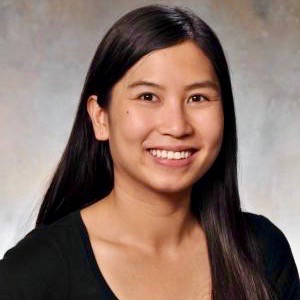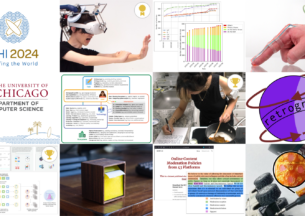Assistant Professor Yanjing Li Awarded NSF CAREER Grant for Innovative Computer Architecture and Deep Learning Research
 Assistant Professor Yanjing Li of the Department of Computer Science at the University of Chicago has been awarded the prestigious National Science Foundation (NSF) CAREER grant for her groundbreaking research in ensuring the reliability of deep learning applications in the presence of hardware failures and bugs. This grant, known for supporting early-career faculty who have the potential to serve as academic role models in research and education, will bolster Professor Li’s innovative work at the intersection of computer architecture, robust system design, and machine learning.
Assistant Professor Yanjing Li of the Department of Computer Science at the University of Chicago has been awarded the prestigious National Science Foundation (NSF) CAREER grant for her groundbreaking research in ensuring the reliability of deep learning applications in the presence of hardware failures and bugs. This grant, known for supporting early-career faculty who have the potential to serve as academic role models in research and education, will bolster Professor Li’s innovative work at the intersection of computer architecture, robust system design, and machine learning.
Hardware failures and design bugs have become increasingly prevalent, posing significant challenges to the reliability, security, efficiency, and sustainability of computer systems. Li’s research aims to address these challenges by developing novel cross-layer approaches, spanning technology, design automation, computer architecture, and software, to guarantee the reliability of deep learning applications while enabling efficient execution across various systems, from cloud servers to edge devices.
“Reliability is a top priority in computer systems, especially as deep learning technologies continue to permeate all aspects of our lives,” says Li. “My research focuses on overcoming the critical challenge of ensuring the reliability of deep learning applications in the face of hardware failures and bugs. This problem is not difficult if we do not take system-level costs (application runtime, power, and/or hardware footprint). While other research focuses on minimizing these costs, my research will reveal solutions that not only impose additional costs, but instead, also enhancing efficiency through innovative co-design strategies.”
The NSF CAREER grant will support Professor Li’s multidisciplinary research efforts, which include three primary thrusts:
- Creating end-to-end approaches for analyzing and mitigating hardware failures in DNN applications through hardware-algorithm co-design. Li aims to understand the impact of hardware failures on various deep learning algorithms application domains, and develop mitigation techniques to enable efficient self-repair architectures and extend the lifetime of systems.
- Co-designing reliable hardware and fine-grained mixed-precision deep neural networks (FGMP-DNNs). This thrust focuses on optimizing hardware designs to accelerate FGMP-DNNs while customizing networks to specific hardware designs, thereby improving reliability and efficiency.
- Generating parameters for DNNs to improve reliability, security, and efficiency. Li will explore lightweight hardware solutions for generating network parameters, optimizing network accuracy while minimizing resource costs.
In addition to her research endeavors, Li is committed to broadening the impact of her work through educational outreach and diversity initiatives. She plans to incorporate creative visualization techniques into computer architecture and systems education, organize workshops for under-resourced high school students, and promote diversity in STEM fields. Li is looking forward to all the future possibilities.
“This award not only enables me to explore bold, breakthrough, impactful research ideas, but also supports my passion for making education more accessible and promoting diversity.”
Li’s pioneering research holds the promise of revolutionizing the reliability, efficiency, security, and sustainability of deep learning applications, paving the way for advancements in computer systems and artificial intelligence. To read more about her and her research, you can visit her profile here.













